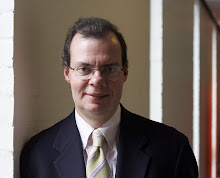One of the first things I was taught at the Episcopal Divinity School in Church History class is that contrary to popular belief Henry VIII did not provoke the English Reformation and thus establishing the Church of England later becoming Anglicanism. This was a surprise to most students even many cradle Episcopalians. The English Reformation was coming of age for quite some time.
There are two major figures in history that did provoke the English Reformation: Erasmus and William Tyndale, both of whom were contemporaries. Tyndale is listed among Lesser Feasts and Fasts, Erasmus is not, but maybe he should. Tyndale lived 1495 to 1536. Erasmus’ famous line is that we are all theologians. Erasmus democratized the then dominant Roman Catholic emphasis on the sacred order and authority of priests as divine mediators. William Tyndale in a similar way translated the bible into English so that the common man could read, meditate and learn from the scriptures without dependence on the priest.
At the heart of the Reformation is a power analysis lessening the distance between priest and layperson as well as between layperson and God. Fredrica Harris Thompsett, an Episcopalian church historian wrote the book We Are Theologians in honor of Erasmus’ words. Thompsett wrote that the “principle of divine accessibility is the central inheritance of all reformed religions”. Baptism not ordination was central to the primary identity of these reformed Christians.
Central to this divine accessibility is having the bible available in one’s own language. In our age we typically take this privilege for granted. Indeed, many prophetic missionaries in the early 19th and even 20th centuries valued the importance of translating the bible into the language of the people. Some missionaries then thought it was still a radical act. Now it is commonplace around the world to have bibles printed in one’s native language, but that is a direct contribution to Christianity from the English Reformation and specifically William Tydale’s work.
Who was this William Tyndale? He completed a Masters at Oxford and later was ordained a priest. Tyndale was a revolutionary prophet of his time. Indeed Henry VIII and others of the period attempted to kill Tyndale to destroy his work. Tyndale once wrote to a prominent Churchman, “If God spare my life, ere many years I will cause a boy that driveth the plough shall know more scripture than thou doest.”
Before Tyndale was ultimately betrayed and burned to death, he had finished and revised his translation of the New Testament and had made it through many of the books of the Old Testament too. His work has been described as “a well of English undefiled”. Lesser Feasts and Fasts reports that “some eighty percent of his version has survived in the language of later and more familiar versions, such as the Authorized King James Version of 1611”.
In today’s language Tyndale would be described as a political theologian for he linked politics to theology through his assessment of power he liberated people through vernacular scriptures. Indeed his last recorded words were, “Lord, open the King of England’s eyes”.
He might also be described as a prophetic priest who though not a scholar was forward thinking enough to consider how he might integrate his interest in politics, commitment to the people and love of scripture. There is no doubt that he had a special vocation from God communicated to him through a sense of the compulsion of the Holy Spirit to do this most marvelous work that would meet the test of generations after him.
It would be an understatement to say that today’s celebration of Wlliam Tyndale’s life and work is important. Our very identity as Episcopalians in an Anglican tradition can be traced to Tyndale’s contributions and his fierce independence from mediators of God’s grace. The English reformers rejected the need for a mediator of God’s grace. All had access to God and the Holy Spirit through the scriptures.
Why do we celebrate William Tyndale’s life today? At the very least so that we have a better sense of our own history as Episcopalians in an Anglican tradition. How might William Tyndale’s life be a source of encouragement for us today?
His passionate commitment to divine accessibility by all Christians through the scriptures is complemented by our Prayer Book of 1979 with its emphasis on Baptism as the primary sacrament of incorporation into the Body of Christ.
Collectively through today’s prayer book and the scriptures available in our native language we are equipped to do the work that God calls us to do. Indeed the very call to a particular vocation is channeled often through the Prayer Book and scriptures read in our native language. We must never underestimate the way we are called to exercise our faith with the same passionate determination of William Tyndale.
Wednesday, October 7, 2009
Subscribe to:
Post Comments (Atom)

No comments:
Post a Comment